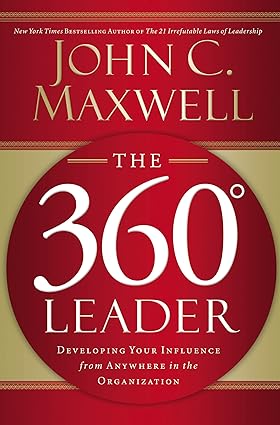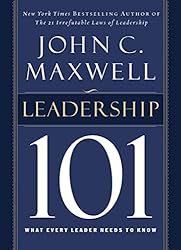Alcaeus (Ancient Greek: Ἀλκαῖος), the son of Miccus, was an Athenian comic poet who wrote ten plays.[1] His comedies marked the transition between Old Comedy and Middle Comedy. In 388 BC, his play Pasiphae was awarded the fifth (i.e. last) place prize.
Fabricius mentions another Alcaeus, a tragedian.[2] Some scholars thought that they were the same person, and calling Alcaeus “a tragedian” rose from an erroneous reading of his title “comoedo-tragoedia”.[3]
ALKAIOS
———————————————————————————————————-
590 B.C.
ALKAIOS
by Alcaeus
Translated and Annotated
by Willis Barnstone
Copyright(C) 1962, 1967, 1988 by Willis Barnstone
þiElectronically Enhanced Text (c) Copyright 1996, World Library(R)
DAK Upgraded Edition, Copyright 2000, DAK Industries 2000, Inc(R)þI
{INSTANT
Instant
I already hear the flowering spring.
{PRAYER
Prayer to the Constellation
Dioskouroi, Patron Deities of Mariners
Come with me now and leave the land of
Pelops, mighty sons of Zeus and Leda,
and in kindness spread your light on us,
Kastor and Polydeukes.
You who wander above the long earth
and over all the seas on swift horses,
easily delivering mariners
from pitiful death,
fly to the masthead of our swift ship,
and gazing over foremast and forestays,
light a clear path through the midnight gloom
for our black vessel.
{WINTER
Winter Evening
Zeus rumbles and a mammoth winter of snow
pours from the sky; agile rivers are ice.
Damn the winter cold! Pile up the burning logs
and water the great flagons of red wine;
place feather pillows by your head, and drink.
Let us not brood about hard times. Bakchos,
our solace is in (r)you¯ and your red wines:
our medicine of grape. Drink deeply, drink.
{SUMMER
Summer Star
Wash your gullet with wine for the Dog-Star
returns
with the heat of summer searing a thirsting earth.
Cicadas cry softly under high leaves, and pour
down
shrill song incessantly from under their wings.
The artichoke blooms, and women are warm and
wanton-
but men turn lean and limp for the burning Dog-
Star parches their brains and knees.
{LIGHTING_LAMPS
Why Wait for the Lighting of the Lamps?
Let us drink. Why wait for the lighting of the
lamps?
Night is a hair’s breadth away. Take down the great
goblets
from the shelf, dear friend, for the son of Semele
and Zeus
gave us wine to forget our pains. Mix two parts
water, one wine,
and let us empty the dripping cups- urgently.
{DRINK_SONG_SHIPS
Drink, Song and Ships
Why water more wine in the great bowl?
Why do you drown your gullet in grape?
I cannot let you spill out your life
on song and drink. Let us go to sea,
and not let the wintry calm of morning
slip by as drunken sleep. Had we
boarded at dawn, seized rudder and spun
the flapping cross-jack into the wind,
we would be happy now, happy as swimming
in grape. But you draped a lazy arm
on my shoulder, saying: “Sir, a pillow,
your singing does not lead me to ships.”
{COSTUME
Costume
But let them hang braided garlands
of yellow dill around our necks,
and drape strands of redolent myrrh
across our breasts.
{BROTHERS_HOMECOMMING
On His Brother’s Homecoming
You have come home from the ends of the earth,
Antimenidas, my dear brother; come
with a gold and ivory handle to your sword.
You fought alongside the Babylonians
and your prowess saved them from annihilation
when you battled and cut down a warrior giant
who was almost eight feet tall.
{LYRE
The Lyre
Daughter of the rock and the gray sea,
you fill all hearts
with triumph, tortoise shell of the sea.
{BIRDS
Birds
What birds are these
wildgeese- flying from precincts where the earth
and oceans end-
with their enormous wings and speckled throats?
{MONEY
On Money
Aristodemos wasn’t lying
when he said one day in Sparta,
“Money is the man; and a poor man
can be neither good nor honorable.”
{HEBROS
To the River Hebros
Hebros, most beautiful river near Ainos,
you carry a shining bath of Thracian foam
out into the purple sea. And many girls
stand near you,
and with soft hands rub oil on the smooth flesh
of their beautiful thighs. And they pour
your water over themselves like a sooth-
ing unguent.
{HELEN_THETIS
Helen and Thetis
Helen, your sinful deeds brought a bitter end
to Priam and his lovely children. They say
because of you holy Ilium was destroyed
by climbing fire.
But the son of Aiakos did not find such a wife
when he summoned the blessed gods to his wedding
and took the delicate sea-nymph Thetis from
the watery palace
of Nereus, bringing her to the mountain cave
of the centaur Cheiron. There, the love of Peleus
for his sea-nymph led him to lie naked with
the untouched virgin,
and within the year she bore a son, Achilles;
bravest demigod and splendid driver of
tawny stallions. But for Helen, Ilium and
her people were destroyed.
{APOLLO
Hymn to Apollo *001
Our king Apollo, O child of mighty Zeus,
when you were born your father gave you
a gold headband and a lyre of tortoise shell,
and more: a chariot drawn by swans. You were
to go to Delphi and the Kastalian springs
whose waters are the gift of broad Kephissos,
and there deliver justice to the Hellenes
through the oracles. But when you seized the reins,
you made the swans sail north to the distant land
of the Hyperboreans, and though the Delphians
begged you to return- with paeans of flutes
and circles of girls dancing about the tripod-
Apollo, you remained to rule that people
through the long year. Came the season when the
tripod
rings loud and clear in Delphi, you turned the swans
to Parnassos. It was high noon of summer
when you glided back from the far northlands;
swallows and nightingales were singing; cicadas
also sang about you; silver brooks poured down
from the Kastalia, and the great river Kephissos
threw blue-foaming waves into the bright wind:
yes,
even the waters knew a god was coming home.
{PEOPLES_SICKNESS
The People’s Sickness
Poverty- our painful and uncontrolled disease-
you maim great peoples with your sister
Helplessness.
{A_WOMAN
A Woman *002
Bad,
every misery and disaster I’ve known, a woman
with a home
of shameful death,
incurable decrepitude coming on
and madness in the terrorized heart of the stag,
out of his mind
and ruined.
{THINGS_WAR
Things of War
The great house glitters with bronze. War has pat-
terned the roof with shining helmets,
their horsehair plumes waving in wind, headdress
of fighting men. And pegs
are concealed under bright greaves of brass which
block the iron-tipped arrows. Many
fresh-linen corslets are hanging and hollow shields
are heaped about the floor,
and standing in rows are swords of Chalkidian steel,
belt-knives and warriors’ kilts.
We cannot forget our arms and armor when soon
our dreadful duties begin.
{WALLS_CITY
Walls and the City
Not homes with beautiful roofs,
nor walls of permanent stone,
nor canals and piers for ships
make the city- but men of strength.
Not stone and timber, nor skill
of carpenter- but men brave
who will handle sword and spear.
With these you have: city and walls.
{HIPOCRISY
Hypocrisy
Father Zeus, in our worst moment of hardship,
the Lydians selflessly gave us two thousand
staters, and gave us hope that we might re-enter
our sacred city
of Mytilene. There we were only strangers,
but in our own homeland the cunning fox
made honeyed speeches for the blackmail gold,
and then betrayed us.
{PREMATURE_ACTIVITY
On Premature Political Activity
It is late; for the harvest is in.
Before, we hoped that the full vines
would bring a plenitude of fine grapes,
but the clusters are slow
to ripen and the landlords
picked unripe bunches from the branch.
We have many grapes now- green and sour.
{TYRANT_PITTAKOS
On the Tyrant Pittakos
One and all,
you have proclaimed Pittakos, the lowborn,
to be tyrant of your lifeless and doomed
land. Moreover, you deafen him with praise.
{NATION_SEA
A Nation at Sea
I can’t tell you which way the gale has turned
for waves crash in from west and east, and we
are tossed and driven between, our black ship
laboring under the giant storm.
The sea washes across the decks and maststep
and dark daylight already shows through long rents
in the sails. Even the halyards slacken as
windward waves coil above the hull.
What sore labor to bale the water we’ve shipped!
Let us raise bulwarks and ride out the storm,
heeding my words: “Let each man now be famous.”
Yet base cowards betray the state.
{MYTILENIANS
To the Mytilenians
The local tyrant
rants and blusters and you are silenced
like a school of frightened neophytes
confronting the dead in holy rituals.
But I tell you, O citizens of Lesbos,
rise up and quench the smoldering logs
before their flames climb and consume you all
in total fire!
{EARTHQUAKE
Earthquake
The tyrant’s craze for absolute power will soon
demolish his country; already the earth trembles.
{BASEBORN_TYRANT
To the Baseborn Tyrant
I say this to him too: his is a strident
lute who would like to he heard at a party
of the well-born people of Lesbos. Better
had he chosen to drink with the filthy herd.
He married a daughter from the ancient
race of Atreus; now let him offend our people
as he did the former tyrant Myrsilos,
until the Wargod makes us revolt. We must
forget our anger and cease these pitiful
clashes between brothers. Only a god
could have maddened our people into war
and so give Pittakos his bit of glory.
{FRIEND_MELANIPPOS
To His Friend Melanippos
Drink and be drunk with me, Melanippos. Do you
think when you have crossed the great fuming
river,
you will ever return from Hell to see the clean
bright light of the sun? Do not strive for wild
hopes.
Even the son of Aiolos, King Sisyphos, wisest of
men,
thought he had eluded death. But for all his brains
Fate made him recross Acheron, and the son of
Kronos
assigned him a terrible trial below the dark earth.
Come, I beg you not to brood about these hopeless
matters while we are young. We will suffer what
must
be suffered. When the wind is waiting in the north,
a good captain will not swing into the open sea.
THE END
{FOOTNOTES
Footnotes
*001 Text is derived from a paraphrase of Alkaios’ poem.
*002 Very fragmentary text but not reconstructed.



















